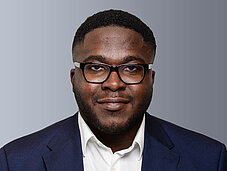
Simulation of Optical Systems with Ansys Zemax OpticStudio
For analyses in the visible, UV and infrared range

In this training, you will learn how to model and analyze various imaging and non-imaging optical systems. This training is offered as a 2-day course.
Duration
2 days
Prerequisites
None
Software used
Ansys Zemax OpticStudio
- Understanding, designing, and evaluating optical components
- Impact of tolerances on the performance of optical systems
- Simulation of laser considering diffraction
- Practical exercises in the simulation and optimization of optical properties
Description
Light is used in many optical applications like cameras, sensors etc., and it is modeled using light rays. With optical simulation, it is possible to analyze optical systems based on defined characteristic quantities. Geometric optics uses light rays to propagate in a system. It is therefore important to understand how rays interact with objects both in sequential and non-sequential ray tracing. Sometimes, certain optical systems don’t follow that rule. An example is a laser. In this case, it is also necessary to use the appropriate algorithms to model particular types of optical applications.
In this training, you will learn about the various algorithms that Ansys Zemax OpticStudio offers for the simulation of an optical system. Starting from basic application examples, you will learn the most important aspects of sequential raytracing used in lens design. In selected practical exercises, you will learn how to model and analyze optical systems. This will help you to understand how imaging and non-imaging systems can be systematically developed and evaluated. You will learn, how to set up innovative, optimized and tolerant optical designs, taking into account structural and thermal effects.
Detailed agenda for this 2-day training
Day 1
01 Introduction to optical simulation
- Sequential raytracing
- Basics of imaging systems
- Aberrations in imaging systems
- User interface of Ansys Zemax OpticStudio
- Basic workflow in imaging system design
- Workshop: simple lens design in Ansys Zemax OpticStudio
02 Design methods of optical systems
- Quick overview of surfaces
- Using lens and material catalogs with dispersion data
- Solver for fast optics design
- Target values for optimization
- Optimization in Ansys Zemax OpticStudio
- Workshop: optimization with a customized target value
03 Tolerances and impact on optical performance
- Tolerances in an optical system
- Tolerance workflow in Ansys Zemax OpticStudio
- ISO 10110 drawing using tolerancing data
- Direct tolerancing using composite surfaces
- Workshop: tolerance considerations using a Zemax Optical design example
04 Laser propagation and diffraction
- Special phenomena: diffraction
- Laser propagation in a system
- Laser Design in Ansys Zemax OpticStudio
- Fiber coupling of a laser beam
- Workshop: example of laser system
Day 2
05 Interaction of light and matter
- Non-sequential raytracing
- Basics of non-imaging systems
- Non-sequential mode: sources, objects, detectors, and workflow
- Workshop: setting up a simple non-sequential simulation
06 Surface und volume properties
- Coatings
- Polarization
- Scattering
- Ray splitting
- Volume physics
- Workshop: optical design with coatings
07 Stray light analysis
- Ray filtering in non-sequential Mode
- Basics of stray light analysis
- Optical design improvement strategies
- Workshop: stray light analysis in an optical system
08 Outlook into advanced topics
- Workflow for optomechanical simulation
- Setup of mechanical components
- Input and results of structural analysis
- Impact of temperature and deformations on optical systems
- Workshop: STOP (Structural Thermal Optical Performance) analysis in an optical system
Your Trainers

Uriel Takoundoum Kamwa
Placement in the CADFEM Learning Pathway
Participant data
Additional information
Commentary
Whether eLearning, classroom courses, live online training or customized workshops - together we identify the best option for you.
Do you have questions on the training?
If you book through your university, you will receive a 50% discount on the stated fee on training courses and eLearning courses.
For more information on the validity and how booking with the code ACADEMIC50 works, please visit our page on training for academic users.
Straight after you sign up, an automatic confirmation of receipt will be sent to the email addresses you provided. Once you have successfully verified the data you provided, you will receive your personalized sign-up confirmation, containing further information on course fees, the billing address, etc., by email within two to three working days.
As soon as the minimum number of attendees has been reached, you will receive a final training confirmation containing further information. If you have booked an on-site training, we recommend that you wait until you have received this final confirmation before booking your travel and accommodation.
If the minimum number of attendees is not reached, we reserve the right to cancel the training seven days before it is due to start at the latest. We are happy to inform you on changing your booking to an alternative date. Please note that we accept no liability for hotel or travel bookings that attendees have already made.
Usually the training courses start at 9:00 am and end at 5:00 pm of the respective local time. The actual course times will be stated in the booking confirmation. Please note that, depending on the training host, there may be a possible time shift between your and the provider's local time. Therefore all local times are provided with the valid time shift to Greenwich Mean Time (GMT).




